Abstract
Nodulated soybean plants (Glycine max [L.] Merr) were grown in sand culture. Carbohydrate composition of nodules, roots, and leaf blades was determined and related to the effects of nitrate in nutrient solution on nodule growth and on nitrogenase activity of nodules.
When plants were grown without nitrate for 6 weeks and then supplied with 150 milligrams NO3-N/liter for 4 or 7 days, there was an 80% decline in acetylene reduction activity of nodulated roots, relative to the 0-N control. The 80% decline in nitrogenase activity was accompanied by a decline in nodule glucose concentration of about 0.15 milligram per gram fresh weight and an increase in nodule sucrose concentration of about 0.23 milligram per gram fresh weight.
Plants were grown with 0, 30, or 100 milligrams NO3-N/liter for 5 or 6 weeks to study long-term effects of nitrate on nodule growth. The 100-N treatment reduced nodule weight/plant by 70% but reduced the sum of sucrose + glucose + fructose concentration in nodules by only 12%. The ratios of [sucrose] in nodules/[sucrose] in roots and [fructose] in nodules/ [fructose] in roots increased slightly in response to nitrate, indicating that nitrate affects sugar concentration in roots more than sugar concentration in nodules.
The effect of nitrate on glucose concentration of nodules was consistently negative. However, if it is assumed that sucrose, glucose, and fructose are equivalent in their ability to support nodule functions, then the overall results are not consistent with the hypothesis that nitrate inhibits nodule growth and activity by reducing the accumulation of carbohydrate in nodules.
Full text
PDF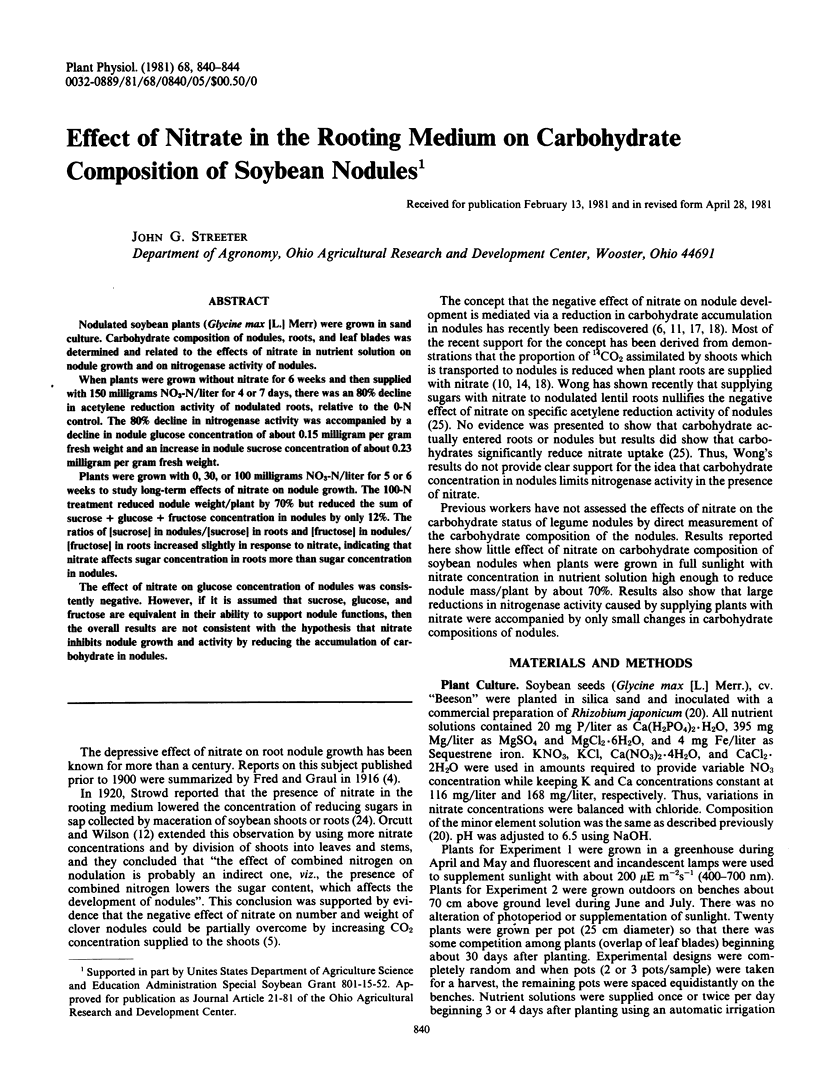
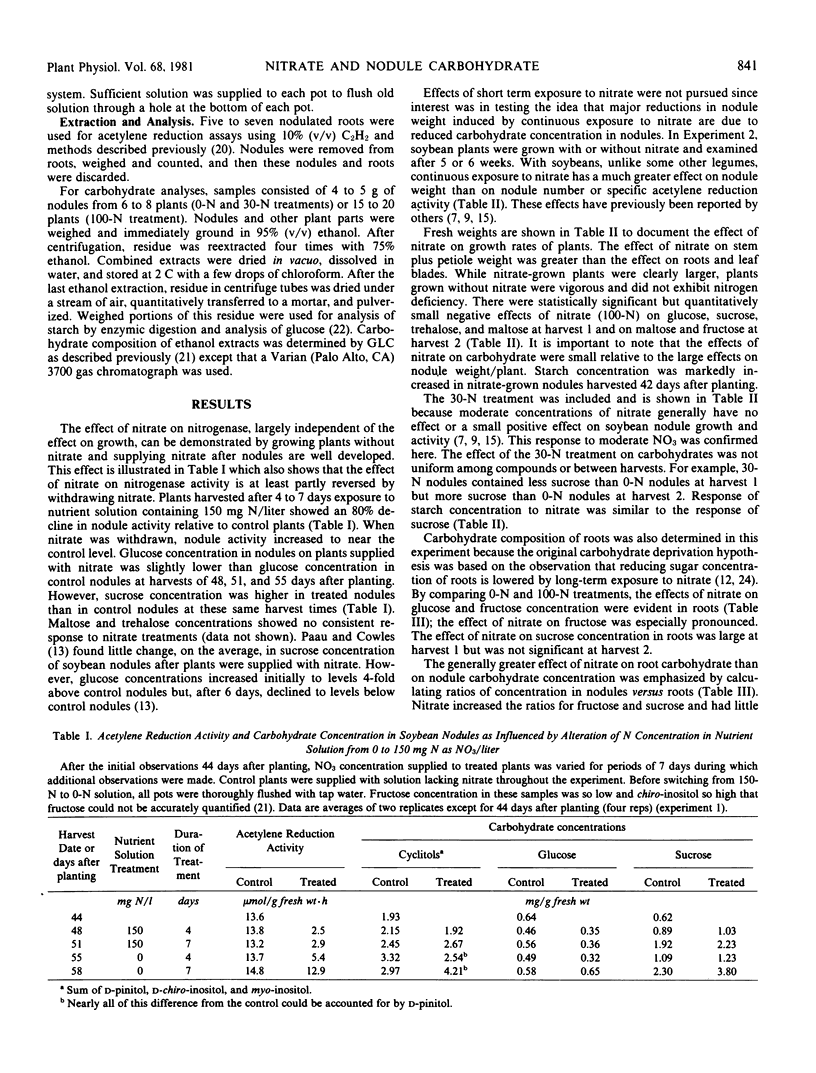
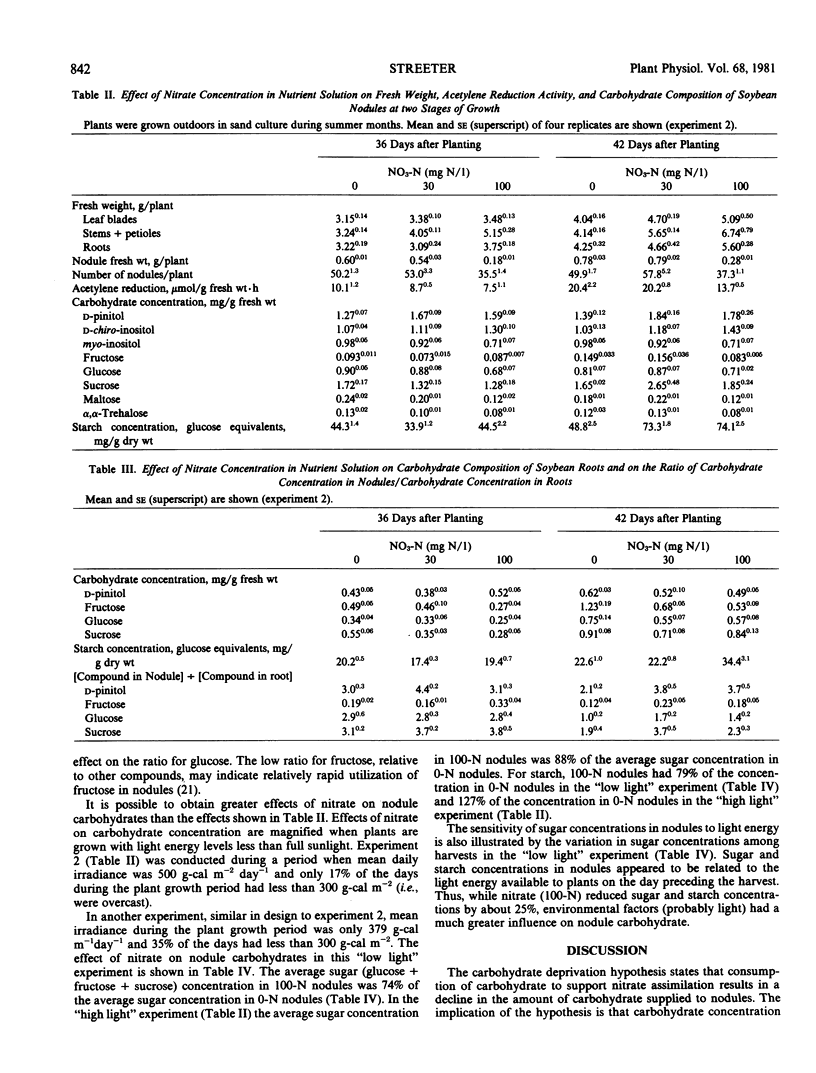
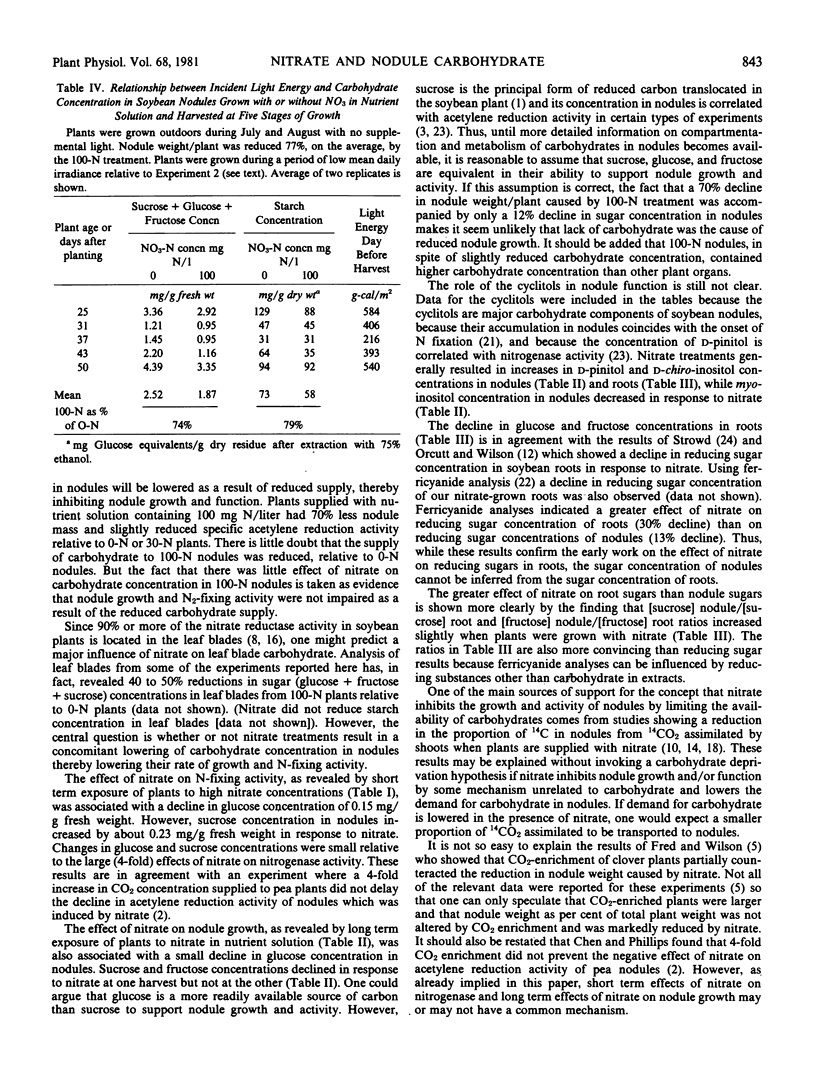
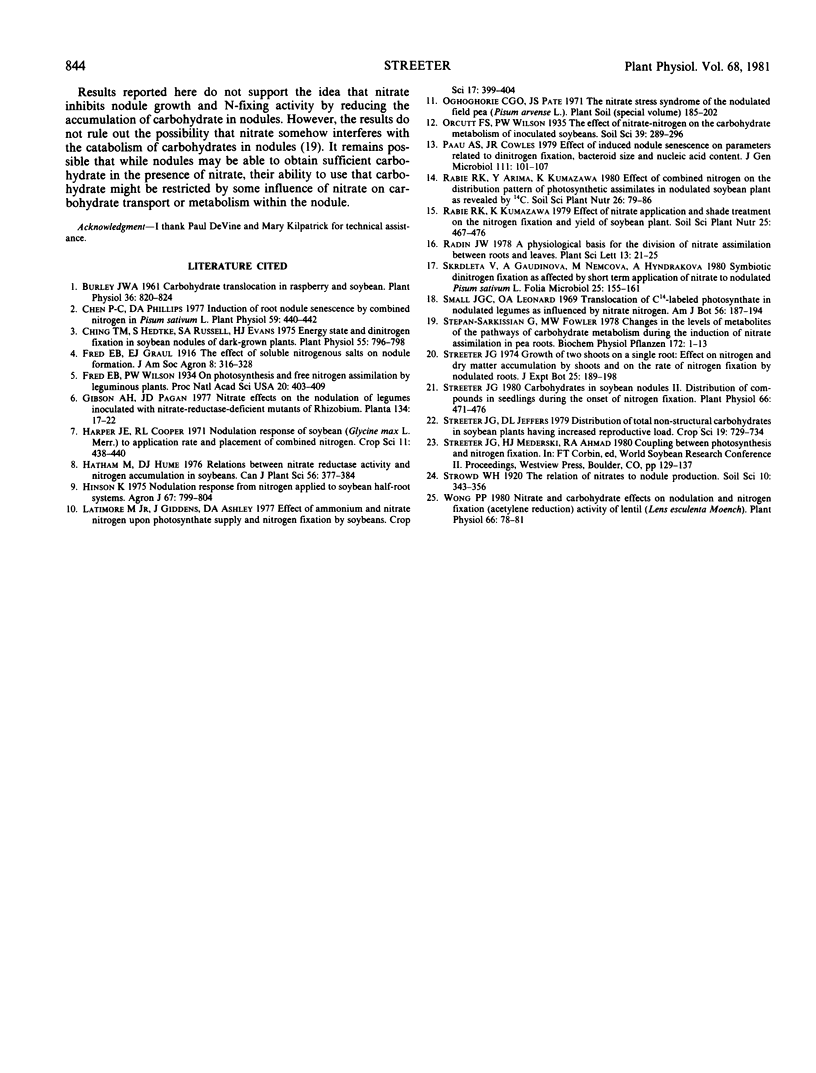
Selected References
These references are in PubMed. This may not be the complete list of references from this article.
- Burley J. W. Carbohydrate translocation in raspberry & soybean. Plant Physiol. 1961 Nov;36(6):820–824. doi: 10.1104/pp.36.6.820. [DOI] [PMC free article] [PubMed] [Google Scholar]
- Chen P. C., Phillips D. A. Induction of Root Nodule Senescence by Combined Nitrogen in Pisum sativum L. Plant Physiol. 1977 Mar;59(3):440–442. doi: 10.1104/pp.59.3.440. [DOI] [PMC free article] [PubMed] [Google Scholar]
- Ching T. M., Hedtke S., Russell S. A., Evans H. J. Energy State and Dinitrogen Fixation in Soybean Nodules of Dark-grown Plants. Plant Physiol. 1975 Apr;55(4):796–798. doi: 10.1104/pp.55.4.796. [DOI] [PMC free article] [PubMed] [Google Scholar]
- Fred E. B., Wilson P. W. On Photosynthesis and Free Nitrogen Assimilation by Leguminous Plants. Proc Natl Acad Sci U S A. 1934 Jul;20(7):403–409. doi: 10.1073/pnas.20.7.403. [DOI] [PMC free article] [PubMed] [Google Scholar]
- Skrdleta V., Gaudinová A., Nemcová M., Hyndráková A. Symbiotic dinitrogen fixation as affected by short-term application of nitrate to nodulated Pisum sativum L. Folia Microbiol (Praha) 1980;25(2):155–161. doi: 10.1007/BF02933016. [DOI] [PubMed] [Google Scholar]
- Streeter J. G. Carbohydrates in Soybean Nodules: II. DISTRIBUTION OF COMPOUNDS IN SEEDLINGS DURING THE ONSET OF NITROGEN FIXATION. Plant Physiol. 1980 Sep;66(3):471–476. doi: 10.1104/pp.66.3.471. [DOI] [PMC free article] [PubMed] [Google Scholar]
- Wong P. P. Nitrate and Carbohydrate Effects on Nodulation and Nitrogen Fixation (Acetylene Reduction) Activity of Lentil (Lens esculenta Moench). Plant Physiol. 1980 Jul;66(1):78–81. doi: 10.1104/pp.66.1.78. [DOI] [PMC free article] [PubMed] [Google Scholar]


